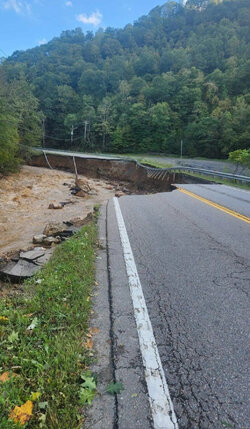Can someone explain how the mountains flooded this hard? I genuinely don't understand, I thought the runoff is too fast.
There are valleys in the mountains, obviously. The water runs off the mountains and falls into the valleys. When you have up to four feet of rain, that adds up
fast. Many communities are in these valleys and they obviously got fucked over by it. As people already mentioned, there was rain before Helene herself (which is meteorologically defined as a Predecessor Rainfall Event, or PRE) and that saturated the soil, meaning it couldn't absorb much, if any, water/rainfall anymore, which led to even more water trickling down into the valleys and not getting absorbed. This also helped cause landslides.
The Appalachians also has many rivers and lakes, which are also present on higher elevations outside of creeks. Many of them massively overflowed, causing record-breaking flooding across a very large area. Because of the PRE, this was already a problem, and dams in the area needed to slowly let out water to prevent flash flooding, which is a relatively normal practice. Because even more intense rainfall occurred, this exacerbated the effects of flooding in the valleys, and overwhelmed dams, causing water to go around or on top of the dam, and in some cases, causing structural damage and dam failures.
It's really just a combination of everything that's out of anyone's control going as wrong as it possibly could. Even Asheville, a city outside of the valleys and on top of the mountains, even advertised as a "Climate Haven" away from any dangers by the media, got fucked up by it. I probably missed some more factors as well.

